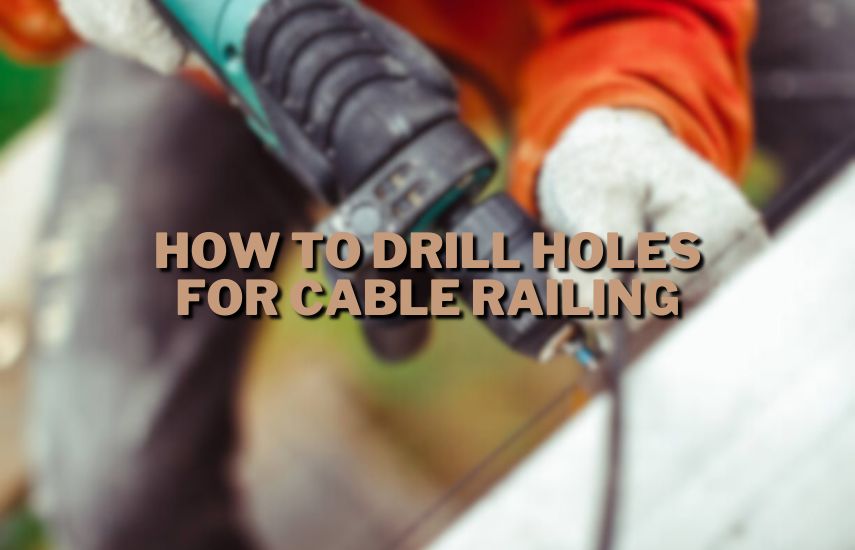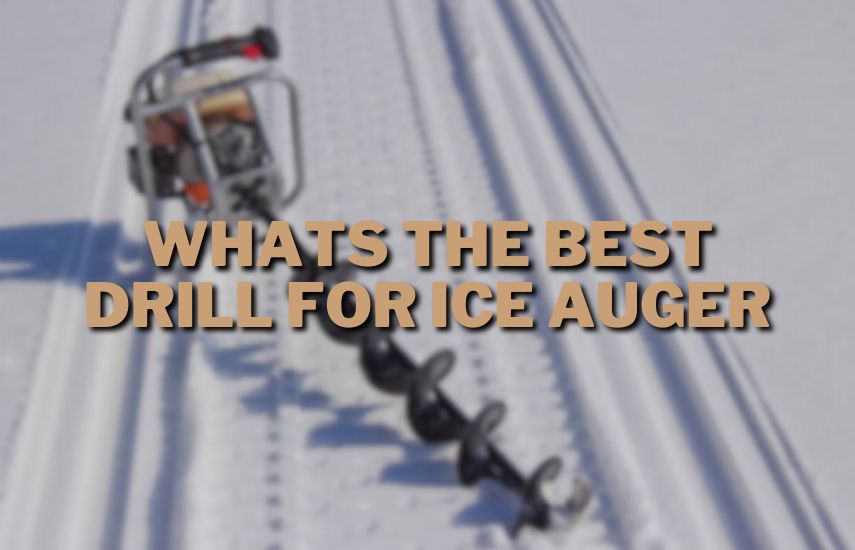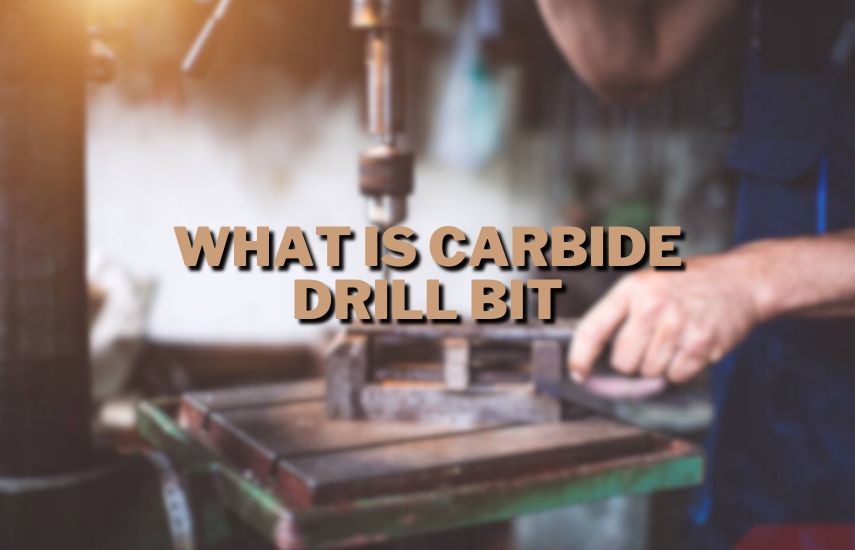Core drilling is a common technique used in construction and renovation projects that involve concrete surfaces.
Whether it’s for installing electrical and plumbing conduits, creating openings for ventilation systems, or setting anchor points, core drilling is essential for precision and accuracy.
Core drilling concrete cost: factors that affect the price? The cost to core drill concrete can vary depending on multiple factors, and it’s best to contact local concrete drilling contractors for specific pricing information.
Many individuals and businesses are often uncertain about the cost implications of this specialized service.
In this blog, we will delve into the factors that influence the cost of core drilling concrete and provide insights into the overall expenses involved.
Factors Affecting Core Drilling Costs
Core drilling concrete is a specialized task that involves cutting precise holes in concrete structures for various purposes such as plumbing, electrical installations, anchor bolt placements, or sampling for testing.
The cost of core drilling can vary significantly based on several key factors. Here are the main factors that influence the cost of core drilling concrete:
Project Scope
The overall scope of the project, including the number of holes to be drilled and their sizes, plays a significant role in determining the cost. Larger projects with multiple holes will generally cost more than smaller, single-hole projects.
Drill Diameter And Depth
The diameter and depth of the holes to be drilled are crucial factors. Larger diameter holes and deeper drilling require more time, effort, and specialized equipment, leading to higher costs.
Accessibility
The accessibility of the drilling location can impact the cost. If the drilling site is challenging to reach, such as in confined spaces or at elevated heights, additional equipment or manpower may be needed, resulting in increased expenses.
Location
The geographical location of the project can influence costs due to differences in labor rates, local regulations, and transportation expenses for equipment and personnel.
Type Of Concrete
The composition and hardness of the concrete can affect the drilling process. Harder concrete may require more powerful drilling equipment and may take longer to drill, which can add to the overall cost.
Number Of Holes
As mentioned earlier, the more holes that need to be drilled, the higher the total cost will be. Contractors may offer discounts for drilling multiple holes in a single project, but it will still be more expensive than drilling just one hole.
Additional Services
If the project requires additional services, such as disposal of drilled cores, cleanup, or post-drilling treatments, these can add to the overall expenses.
Project Complexity
Some projects may have specific complexities, such as drilling at an angle or through reinforced concrete. These situations may require specialized equipment and techniques, which can increase costs.
Timeline And Urgency
The time frame within which the project needs to be completed can also influence costs. If the project requires expedited services or must be completed within a short time frame, the contractor may charge higher rates for prioritizing the work.
Contractor Experience
The expertise and reputation of the drilling contractor can also impact the cost. Highly experienced contractors may charge more for their services, but their expertise can lead to a smoother and more efficient drilling process.
It’s essential to obtain detailed quotes from multiple reputable drilling contractors, outlining all aspects of the project, to get an accurate understanding of the costs involved.
Be wary of overly low-cost estimates, as they may indicate lower-quality work or hidden fees. Similarly, high-cost estimates should be scrutinized to ensure that they align with the complexity and requirements of the project.
Cost Breakdown

Labor Costs
Labor is a significant cost component in core drilling projects. The skill level and experience of the workers, along with the complexity of the drilling job, will influence the labor cost.
In general, labor costs can range from $50 to $150 per hour per worker. The complexity and size of the project may also require multiple workers, which will add to the overall labor cost.
Equipment Rental Expenses
Core drilling requires specialized equipment such as core drills, drill stands, and various types of drill bits. The rental costs for this equipment can vary based on the equipment’s size, power, and capacity.
On average, equipment rental expenses can range from $100 to $500 per day, depending on the complexity of the project and the rental duration.
Drill Bit Costs
The cost of drill bits is another significant factor to consider. Drill bits come in various sizes and types, and their prices vary accordingly.
Standard diamond core drill bits can range from $20 to $200 each, depending on the diameter and quality. For more specialized or larger drill bits, the cost can be higher.
Concrete Removal And Disposal
After core drilling, there will be leftover concrete cores that need to be removed and disposed of properly.
Some contractors include this service in their overall pricing, while others may charge an additional fee.
The cost for concrete removal and disposal can range from $50 to $150, depending on the amount of waste generated.
Additional Services
Depending on the project’s requirements, additional services may be needed, such as post-drilling treatments, cleanup, or site restoration. These services can add to the total cost, and prices may vary based on the extent of the work needed.
Travel And Transport
For projects located at a significant distance from the contractor’s base, travel and transport costs may be included in the overall quote. This cost component will depend on the distance to the site and the contractor’s policies.
Permitting And Inspection Fees
In some regions, core drilling projects may require permits or inspections. The cost of obtaining these permits and paying for inspections will vary depending on local regulations.
Overall, the total cost of core drilling concrete can range from a few hundred dollars for a small, straightforward project to several thousand dollars for larger and more complex jobs.
Regional variations, market competition, and the contractor’s reputation can also influence the pricing.
To get an accurate breakdown of costs for your specific project, it’s crucial to obtain detailed quotes from reputable local contractors who consider all the relevant factors involved.
Labor Costs
Labor costs are a significant component of core drilling expenses, and they are justified by the specialized skills and expertise required to handle the equipment safely and efficiently.
Core drilling is a precision task that demands trained operators who understand the intricacies of the process and can navigate potential challenges that may arise during the drilling operation.
Skilled Operators
Core drilling equipment, such as core drills and drill stands, can be powerful and complex machines. Skilled operators are essential to handle this equipment properly, ensuring that the drilling process is carried out safely and accurately.
These operators have undergone training and have practical experience in core drilling techniques, making them proficient in achieving precise and clean-cut holes without damaging the surrounding concrete structure.
Safety And Efficiency
The importance of safety cannot be overstated in core drilling. An experienced operator knows how to implement safety measures to protect themselves, other workers, and the project site.
Core drilling involves creating holes in potentially hard and unpredictable surfaces, and without the expertise of skilled operators, there is a higher risk of accidents, damage, and project delays.
Complexity of the Project
The complexity of the core drilling project directly influences the required level of expertise and the number of skilled operators needed.
More complex projects, such as drilling at angles or through reinforced concrete, demand a higher level of proficiency and may require a team of operators to work collaboratively. As the complexity increases, the labor costs are likely to rise accordingly.
Drilling Speed And Accuracy
Experienced operators are efficient in completing drilling tasks swiftly and accurately. This efficiency can be crucial, especially in time-sensitive projects, as it minimizes labor hours and reduces overall costs.
Preventing Costly Mistakes
Inexperienced or unskilled operators are more likely to make errors during the drilling process, which can lead to costly mistakes.
These mistakes may necessitate additional repairs or rework, adding to the overall project expenses. Skilled operators minimize the risk of such errors, contributing to cost savings in the long run.
Equipment Handling
7Core drilling equipment can be heavy and unwieldy, requiring physical strength and proper handling techniques.
Skilled operators know how to handle the equipment effectively, reducing the risk of equipment damage, which would otherwise incur additional costs.
Project-Specific Knowledge
Different core drilling projects may have unique challenges and requirements. Experienced operators are better equipped to adapt to these specific needs, troubleshooting potential issues, and customizing their approach accordingly.
Value For Investment
While labor costs may constitute a significant portion of the overall core drilling budget, it is an investment in quality workmanship and reliable results.
Skilled operators ensure that the core drilling is done right the first time, saving both time and money compared to lower-cost alternatives that may sacrifice quality.
Labor costs associated with core drilling concrete are justified by the expertise and skill required to handle the specialized equipment safely and efficiently.
Experienced operators provide a level of precision, speed, and reliability that ensures the project is completed with minimal errors and delays.
Equipment Rental

Discuss the importance of specialized equipment for core drilling concrete and how equipment rental costs factor into the overall budget.
Explain that the size and type of machinery needed will determine the rental expenses, and it’s essential to use high-quality equipment to ensure precise and efficient drilling.
Efficiency and Precision
Core drilling requires a high level of precision to create clean, smooth holes in concrete structures. Specialized core drilling equipment, such as diamond-tipped drill bits and advanced drill rigs, are engineered for this purpose.
They can handle the density and hardness of concrete more effectively, ensuring that the desired hole size and depth are achieved with accuracy and efficiency.
Minimizing Damage
Using high-quality and appropriate equipment helps minimize the risk of damaging the surrounding concrete or causing unnecessary vibrations.
Proper equipment selection reduces the chances of cracks or fractures in the concrete, which could lead to additional repair costs.
Safety Considerations
Specialized core drilling equipment is designed with safety features to protect operators and other workers on the site. Safety should always be a top priority, and using the right equipment reduces the likelihood of accidents or injuries during the drilling process.
Speed Of Drilling
Advanced core drilling equipment is more powerful and capable of faster drilling speeds. This can result in reduced labor hours and overall project duration, translating to potential cost savings.
Size And Type Of Machinery
The size and type of machinery required for core drilling depend on the specific project’s needs. For instance, smaller handheld drills may be suitable for simple, shallow holes, while larger, more robust drill rigs are necessary for larger diameter and deeper holes. The rental costs for the equipment will vary based on its size, capacity, and complexity.
Rental Expenses
Equipment rental costs are a significant consideration in the core drilling budget. Renting specialized equipment can be a cost-effective option compared to purchasing, especially for one-off projects or when the equipment is not frequently used.
Avoiding Equipment Maintenance Costs
Renting equipment also means that the contractor does not have to bear the maintenance and repair expenses typically associated with owning heavy machinery. The rental company is responsible for keeping the equipment in good working condition.
Access to the Latest Technology
Renting equipment gives contractors access to the latest advancements in core drilling technology without the need for large upfront investments. This ensures that the project benefits from cutting-edge equipment, maximizing efficiency and productivity.
Flexibility
Different core drilling projects have varying requirements. Renting equipment allows contractors to select the most suitable machinery for each specific project without being tied to a single type of equipment.
Quality Of Results
Using high-quality, well-maintained equipment contributes to achieving superior results in terms of hole accuracy and finish. This is essential for projects where precise measurements and hole quality are critical.
Specialized equipment is vital for core drilling concrete due to its impact on efficiency, precision, safety, and overall project quality. Equipment rental costs are a crucial factor in the core drilling budget, but they are justified by the benefits gained, including access to advanced technology, minimized damage risks, and increased project efficiency.
It is essential for contractors to carefully consider their equipment needs and select high-quality machinery that meets the project’s specific requirements to ensure precise and efficient drilling results.
Drill Bit Costs
Explain the significance of drill bits in core drilling and their cost implications. Mention that diamond-tipped drill bits are commonly used for concrete drilling due to their durability and effectiveness. Clarify that the size and quality of drill bits will affect their price, and investing in good-quality drill bits is crucial for a successful drilling process.
Importance Of Drill Bits
The performance of the drill bits has a direct impact on the quality of the core drilling process. Properly functioning drill bits can make clean, accurate holes with minimal chipping or spalling, ensuring a smooth finish that meets the project’s requirements.
On the other hand, low-quality or worn-out drill bits may cause excessive damage to the concrete, leading to additional repair costs and potential project delays.
Diamond-Tipped Drill Bits
Diamond-tipped drill bits are the most commonly used for core drilling concrete due to their exceptional hardness and durability. The diamond segments on the drill bits’ cutting edge make them highly effective at grinding through tough materials like concrete. Diamond drill bits are suitable for both wet and dry drilling methods and can handle various concrete types, including reinforced concrete.
Size And Quality Affect Price
The size and quality of drill bits significantly impact their cost. Larger diameter drill bits are generally more expensive than smaller ones due to the increased materials and manufacturing complexity. Higher-quality drill bits with more robust diamond segments and better engineering will command a premium price.
Cost Implications
While diamond-tipped drill bits may seem more expensive initially, investing in good-quality drill bits is essential for a successful and efficient drilling process. Cheaper drill bits made with lower-grade materials may wear out quickly, leading to increased downtime and the need for frequent replacements.
In contrast, high-quality drill bits tend to last longer and maintain their cutting performance, resulting in reduced overall costs and increased productivity.
Precise And Efficient Drilling
Good-quality diamond drill bits deliver consistent and precise drilling performance. They are less likely to deflect or veer off course during drilling, minimizing the risk of errors and rework. The efficiency gained from using reliable drill bits translates to cost savings through reduced labor hours and faster completion times.
Long-Term Investment
Viewing drill bits as a long-term investment is essential. While the upfront cost of high-quality drill bits may be higher, their durability and performance will pay off in the long run through extended lifespan and fewer replacements.
Safety Considerations
Using high-quality drill bits ensures safer drilling operations. Worn-out or low-quality drill bits can be prone to breakage or loss of cutting efficiency, increasing the risk of accidents and injuries on the job site.
Adaptability
Depending on the project’s requirements, different types of drill bits may be needed, such as those designed for wet or dry drilling. Investing in a variety of good-quality drill bits allows contractors to tackle a wide range of core drilling tasks effectively.
The significance of drill bits in core drilling concrete cannot be overstated. Diamond-tipped drill bits, known for their durability and effectiveness, are the preferred choice for concrete drilling. The size and quality of drill bits directly impact their price, but investing in good-quality drill bits is crucial for achieving precise, efficient, and cost-effective drilling results.
Additional Services

Elaborate on any extra services that might be required in addition to core drilling, such as debris removal, disposal, or patching.
Discuss how these services can add to the overall cost and how they can vary depending on the extent of work needed.
Debris Removal And Cleanup
After core drilling is completed, there will be leftover concrete cores and debris that need to be removed from the drilling site.
Cleaning up the work area and disposing of the debris properly is an essential step in the process. Some contractors include debris removal and cleanup as part of their core drilling package, while others may charge an additional fee for this service.
Concrete Core Disposal
The concrete cores that are drilled out during the process may need to be properly disposed of according to local regulations.
Disposal costs can vary based on the quantity of concrete cores and the disposal methods required, such as recycling or landfill disposal.
Patching And Surface Restoration
Core drilling leaves behind holes in the concrete, which may need to be patched or restored to match the surrounding surface.
This service ensures a seamless finish and prevents any structural issues caused by the drilled holes. Patching costs can vary depending on the size and depth of the holes, the type of concrete, and the level of surface restoration required.
Structural Reinforcement
In some cases, core drilling may compromise the structural integrity of the concrete, particularly when drilling through load-bearing walls or floors. To ensure safety and stability, additional structural reinforcement might be necessary, such as inserting anchors or epoxy grouting. The complexity of reinforcement work can significantly impact the overall cost.
Permitting And Inspection Fees
Certain core drilling projects may require permits or inspections from local authorities. The cost of obtaining these permits and complying with inspection requirements can vary based on the project’s location and scope.
Post-Drilling Treatments
Depending on the purpose of the core drilling, additional treatments or testing might be needed on the drilled holes.
For example, if the holes are drilled for sampling purposes, additional laboratory testing may be required. These treatments and tests can add to the overall cost of the project.
Access And Site Preparation
For some core drilling projects, especially those in challenging or remote locations, additional site preparation and access arrangements may be necessary.
This can involve clearing obstacles, setting up temporary access roads, or using specialized equipment to reach the drilling site. The cost of these preparations will depend on the site’s specific conditions.
Time And Urgency
If the project requires completion within a tight timeframe or if there are strict deadlines to meet, expedited services may be necessary, which can lead to higher costs.
It’s essential for contractors and clients to discuss these additional services with the core drilling company beforehand to have a clear understanding of the total project cost.
Depending on the extent of work needed for debris removal, disposal, patching, and other services, the overall cost of the core drilling project can vary significantly.
Obtaining detailed quotes from reputable contractors that include all the necessary additional services will help ensure an accurate budget estimate for the entire core drilling project.
Conclusion (Core Drilling Concrete Cost: Factors That Affect the Price)
To get an accurate and up-to-date cost estimate for core drilling concrete, I recommend contacting local concrete drilling contractors or companies in your area and requesting a quote based on your specific project requirements. They will be able to provide you with the most accurate and current pricing information.
Core drilling concrete is a specialized task that requires careful consideration of various factors that influence its costs.
Throughout this discussion, we’ve highlighted key aspects that contribute to the overall expenses, including labor costs, equipment rental expenses, drill bit costs, and additional services such as debris removal, patching, and structural reinforcement.
Labor costs are justified by the expertise of skilled operators who ensure safe and efficient drilling. Specialized equipment is vital for precise and smooth drilling, with diamond-tipped drill bits being commonly used for their durability and effectiveness.
Investing in good-quality equipment and drill bits is crucial for successful core drilling projects, reducing long-term expenses and ensuring top-notch results.









